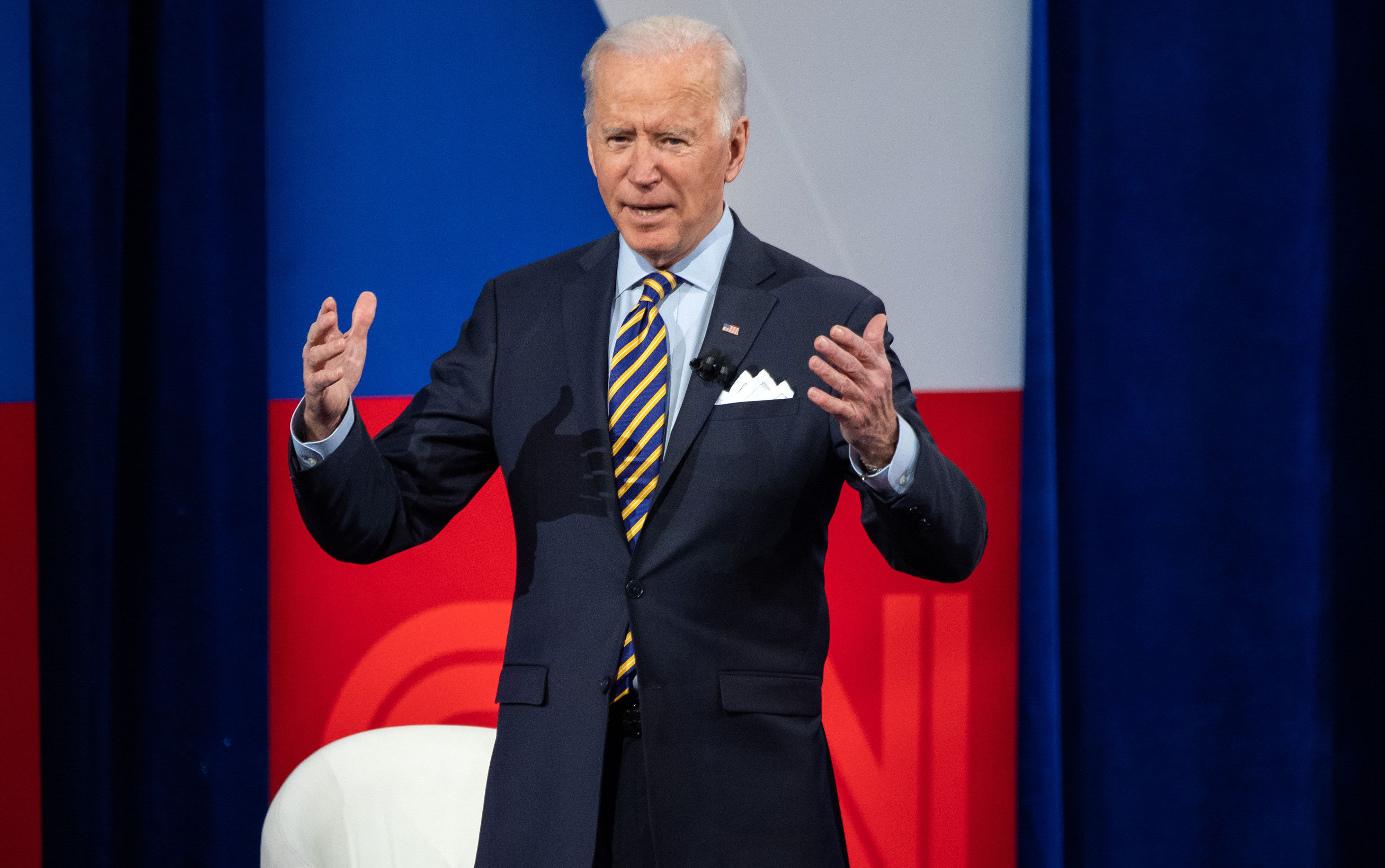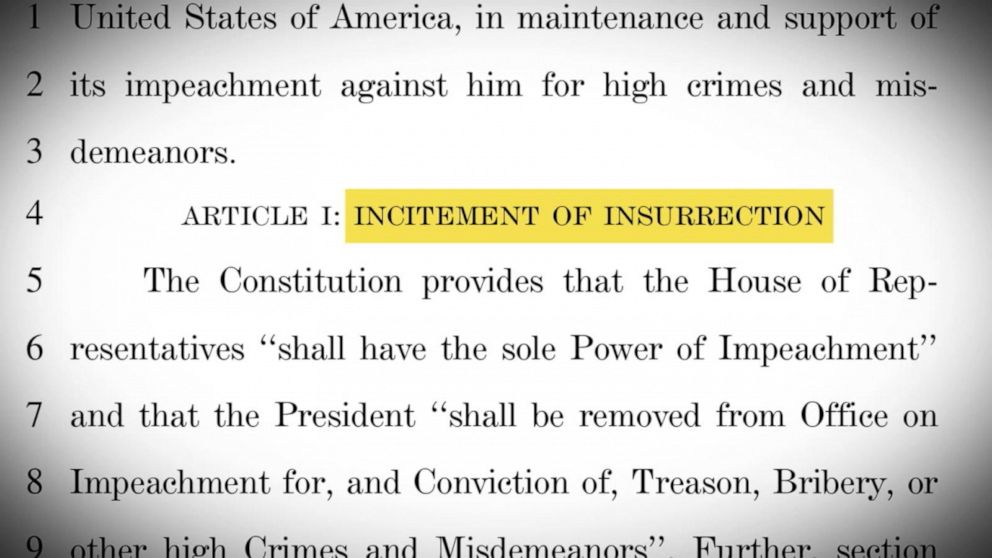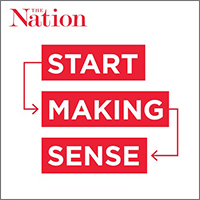 Listen HERE
Listen HERE
The Republicans after the second impeachment: As Mitch McConnell takes the lead in trying to purge Trump from the party, how divided are they? And how much weaker as a result? Rick Perlstein comments—he’s the author of the new book Reaganland: America’s Right Turn, 1976-1980—widely regarded as the best political book of last year.
Also: Biden and the Democrats still have to succeed at changing things enough to win new supporters—and now that impeachment is finished, his $1.9 trillion pandemic relief bill takes the center of the political stage, including the $15 minimum wage. Alan Minsky comments on that, and on the longer term problem of restoring American manufacturing—he’s Executive Director of Progressive Democrats of America. 2-18-21
Start Making Sense
How Trump Incited an Insurrection: John Nichols on impeachment, plus Steve Phillips on Turning Texas Blue
 Listen HERE
Listen HERE
John Nichols considers the arguments made by Trump’s lawyers, and by Republican Senators, that Trump is not guilty of inciting the insurrection of January 6, that he did not incite his followers to storm the capitol and attempt to stop Congress from certifying Joe Biden as the winner of the electoral college. Also: the implications of finding Trump not guilty.
Plus: we take a step back from this week’s politics and look forward to 2022 and future elections—the Democrats’ victories in Georgia were a decade in the making can we do it again in another Republican state? Steve Phillips says “Texas is next.” 2-10-21
Prosecute the Insurrectionists: Elie Mystal; Gary Younge on Obama; Remembering Rennie Davis
 Listen HERE
Listen HERE
Eight hundred people stormed the Capitol building on January 6, but fewer than 200 have been charged with crimes. Why so few? Elie Mystal, The Nation’s Justice correspondent, says every one of the 800 committed crimes that day and should be prosecuted.
Also: For Black History Month, Gary Younge talks about Barack Obama and his memoir A Promised Land—and the refusal of many liberals to critique his policies and decisions.
Finally: we remember Rennie Davis–he died on Feb. 2.
2-3-2020
Joe Biden vs. Covid-19, Week One: Gregg Gonsalves, plus John Nichols on Biden’s first week
 Listen HERE
Listen HERE
The national death toll from covid-19 will reach half a million next month, and new strains of the virus are threatening. Joe Biden has called for what he calls “full-scale wartime effort,” including $350 million in direct funding, and now he’s aiming for 150 million vaccine doses in is first 100 days. Gregg Gonsalves comments on what Biden and Congress need to do now.
Also: Faced by the pandemic and economic collapse, Biden knows he has to work harder and faster than any president since Franklin Delano Roosevelt – he doesn’t have a hundred days to launch his initiatives – he’s got to set the tone in ten. John Nichols comments on what Biden has accomplished in his first week – and what his next priorities ought to be. 1-28-2021
Joe Biden and Us: Joan Walsh; plus Barbara Ransby on Biden and Black America, and Gary Younge on Storming the Capitol
 Listen HERE
Listen HERE
Biden’s inauguration marked a triumph of hope over fear, says Joan Walsh. First we celebrate, and then we go to work debating what is possible and what is necessary—all the things that real people really need. The next four years will bring progressives some political frustration and some disappointments, but that will be so much better than what we’ve had for the last four years.
Plus: In Joe Biden’s first speech as president-elect, he promised Black America that he would have their backs. Now he needs to take prompt action to fulfill that pledge. Barbara Ransby comments—she’s a historian, writer, and longtime political activist, a distinguished professor at the University of Illinois at Chicago, best known for her award-winning biography Ella Baker and the Black Freedom Movement.
Also, Gary Younge, the award-winning former columnist for The Guardian and member of The Nation‘s editorial board, comments on the insurrectionists of January 6. They failed to stop Congress from certifying Biden as the winner of the election—so what WAS the plan? And what IS their future? 1-20-2021
Trump’s Crime: Incitement of Insurrection—John Nichols on impeachment, plus Astra Taylor on debt and Robert Lipsyte on Trump and golf
 Listen HERE
Listen HERE
As the House moves to impeach Trump—a second time—for “incitement of insurrection,” Republican support for Trump is wavering. John Nichols comments on the historic moment that is at hand.
Also: Biden’s first 100 days begin January 20, and his first acts should include an executive order cancelling student debt—that’s what Astra Taylor says, she’s co-founder of the Debt Collective and has published widely. Other forms of debt cancellation can follow—medical debt, consumer debt, the coming bills for deferred rent and mortgage payments.
Plus: the PGA is cancelling their longstanding plans to hold the U.S. Open at Trump’s Bedminster golf course in New Jersey. The New York Times reports he is more devastated by this than by impeachment. The legendary sportswriter Robert Lipsyte comments on Trump and golf. (This segment originally broadcast in August, 2017). 1-14-2021
The Trump Mob that Stormed the Capitol: Joan Walsh and Eric Foner
 Listen HERE
Listen HERE
Wednesday was one of the worst days in the history of American democracy—Joan Walsh comments on the Trump mob that stormed the capitol, the capitol police who didn’t arrest them, the Republicans who continue to stand by Trump—and the Republicans who don’t.
Also: Eric Foner provides historical context for Wednesday’s events in Washington, and also the victories in the Georgia Senate races. 1-7-2021
Vaccine Priorities: Politics and Ethics–Gregg Gonsalves on Covid-19, plus John Nichols on politics in 2020
 Listen HERE
Listen HERE
Vaccine priorities: political and ethical questions about who comes first, after health care workers. Gregg Gonsalves considers the arguments—the choice is between reducing the death toll—which means giving priority to the oldest people—and keeping society functioning—which means giving priority to essential workers. And the Global South must be included in all vaccine distribution plans—because “the virus doesn’t care where you live.”
Also: 2020 in review: the political year began with Bernie winning early primaries and losing the rest; then came the summer of Black Lives Matter, with the largest protest movement in American history; and then Election Day, without fighting in the streets or the courts overturning the results. John Nichols comments. 12-30-2020
White Voters in 2020—and Everybody Else: Joan Walsh on Politics, plus Amy Wilentz on the Trump Kids
 Listen HERE
Listen HERE
A year, and a decade, of political challenges: Joan Walsh reviews the fall and rise of Kamala Harris, the return of Joe Biden, and the deepening problem posed over the last decade by white voters who now support Trump.
And Amy Wilentz reviews what happened in 2020 to Ivanka, Jared, Don Junior and Eric Trump—boy did those kids get into trouble this year! Jared was put in charge of pandemic response, Ivanka carried the bible for that disastrous photo-op, and Don Junior and Eric tried to outdo their father on the campaign trail. 12-23-2020
From Obama to Trump: Eric Foner; plus John Powers on John le Carré
 Listen HERE
Listen HERE
Obama’s memoir of his political rise and his first two years in office, A Promised Land, reminds us of a time when Donald Trump barely existed on our political landscape and in our consciousness. Eric Foner comments on what’s in the book—and what Obama leaves out.
Also: John le Carré died on Saturday—he was 89, and one of the greats, author of two dozen books people called “spy novels,” although they were much more than that. John Powers comments—he’s critic-at-large on Fresh Air with Terry Gross. 12-17-2020
